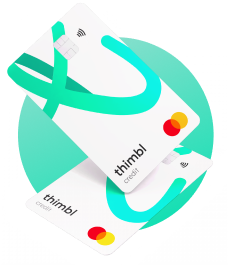Credit card minimum payments
What are credit card minimum payments?
If you’re thinking about searching for a credit card, you’re likely to have questions about managing your credit card account. In this article, we’ll take a look at credit card repayments.




If you've never had a credit card before, or are new to credit cards, you may be wondering:
- What is the minimum payment on a credit card?
- Can you make more than the minimum repayment on your credit card?
- How do you make credit card repayments?
Our guide answers some frequently asked questions about minimum credit card repayments, while sharing information about why it’s important to make your repayments on time. We’ll also talk about how you can avoid interest by clearing your balance in full each month.
- For all credit levels, from poor to excellent
- Checking won’t affect your credit rating
- 48.9% APR Representative (variable)

What is a credit card minimum repayment?
The money you spend on your credit card is called the balance. You must pay at least a minimum amount off your balance each month.
The minimum repayment amount will vary depending on how much money you owe but will usually be a percentage of the balance. Typically, the repayment may be between 1-2.5% of the balance.
Some credit card providers may charge a flat fee rather than a percentage.
Your minimum repayment amount will be shown on your credit card statement.
Why is it important to make at least the minimum repayment on your credit card balance?
You must make at least the minimum repayment amount due on your credit card each month. If you make a late repayment or miss one altogether, you may be charged a fee, and your credit score could be harmed.
Can I make more than the minimum repayment?
Yes, you can. You can pay off as much of your credit card balance as you like, although you must make sure you don’t leave yourself short when covering the cost of your essential monthly outgoings, such as rent or mortgage, bills, and food.
How to make credit card repayments
Each month, you’ll be sent a credit card statement, which will show your recent transactions and your balance. You’ll also be shown the minimum amount of money that you need to repay.
On the back of your statement, you’ll find information on the different ways you can make your repayment. Depending on your credit card provider, you could make your repayment online using your debit card or internet banking; in person at a bank or Post Office; or by Direct Debit.
If you’re worried about forgetting to make your repayment each month, setting up a Direct Debit could give you that peace of mind.
When you set up a Direct Debit, you’ll need to let your credit card provider know how much money you’d like to pay each month. The money will automatically leave your account on your repayment date.
If you’d prefer to make your credit card repayments by any of the other ways we’ve mentioned, you’ll need to make at least the minimum repayment amount so that it reaches your credit card provider before the date it's due. Bear in mind that some methods take longer to process than others – the last thing you want is to be charged a late payment fee.
Can I choose when I make my credit card minimum repayment?
When you first open your credit card account, you may automatically be given a repayment date. If this doesn’t work for you, you may be able to change this - perhaps to your payday. Your credit card provider will be able to let you know if you can do this, and how.
How does interest work with credit card repayments?
The amount of interest you’ll pay each month will depend on your credit card’s annual percentage rate (APR) and your outstanding balance.
The more you pay off your credit card balance, the less interest you’ll be charged. If you clear the balance of your credit card in full and on time each month, you won’t be charged any interest at all.
You can work out your monthly minimum repayment amount using a credit card repayment calculator.
Minimum repayment on interest-free credit cards
Some credit cards, such as purchase and balance transfer credit cards, could come with an interest-free promotional period. During this time, you’ll need to make a minimum repayment each month, but this won’t include interest.
Once the promotional period has ended, any balance on your credit card account will begin to be charged interest at your standard interest rate.
What is a credit limit?
Your credit limit is the total amount of money you’ve been approved to borrow on your credit card. Remember, you don’t need to use all of the money available to you; you should only ever spend what you need to and can afford to repay.
You should always try to stay well within your credit limit.
What is credit card utilisation?
Credit card utilisation is the amount of money you’re using of your credit limit and is usually shown as a percentage.
Here’s an example.
- Your credit card credit limit is £2,000.
- Your current balance is £100.
- In this instance, your credit card utilisation is 5%.
If you’re hoping to improve your credit score, you should aim to keep your credit card utilisation as low as possible.
I can’t afford my credit card repayments; what can I do?
If you’re struggling to make your credit card repayments, you should contact your provider as soon as possible. There may be things they can do to help relieve some of the financial pressure.
Please know that you can access free, impartial money and debt management advice through charities and organisations, such as StepChange, MoneyHelper, Citizens Advice, and National Debtline.

Page last reviewed: 19th August 2025
Page reviewed by: Harry Lawrance
You get all this with thimbl
Tap and go
Quick and easy contactless payments up to £100.
Secure banking app
Manage your credit card online, wherever and whenever you like, with the free mobile app.
A trusted service
Over 4,500 positive reviews from our customers.
48.9% APR Representative (variable)
Quick links








Worried about money?
If you're worried about the cost of living, need support with budgeting, or think you might need debt advice, StepChange could help. They offer free and impartial support and help hundreds of thousands of people every year to deal with their debts and take control of their finances.
To find out how StepChange could help you, take the free Money Health Check. It's quick and easy to complete, and will give you a personalised recommendation on what to do next.
Meet the team
Head of Compliance
Head of Partnerships
Managing Director, thimbl
Marketing Manager, thimbl
Financial Content Writer
Frequently asked
questions
If you've got a question, you may just find the answer you're looking for here. If not, please visit our contact us page and get in touch.
What will my credit limit be?
You will always be made aware of any credit limit changes to any credit cards you have beforehand, and you do not have to accept a credit limit increase if you don't feel it's right for you.
What happens if I fail to make my repayments?
Missed payments will be reported to the credit bureaus, and your account will appear as in arrears. You will be charged a late fee, which is usually around £12. Your credit rating is also likely to decline as a result.
You should try to make your missed payments as soon as possible.
If you're struggling to keep on top of your repayments, you can find free, impartial advice from MoneyHelper, StepChange, Citizens Advice and National Debtline
If you want to know more about how credit cards work, you can read our blog.
Did you find this article helpful?
Let us know how we can be more helpful
Please leave your anonymous feedback to help us keep improving.
Need help or support?
Whether it's a question or you just need support, we're here to help.







